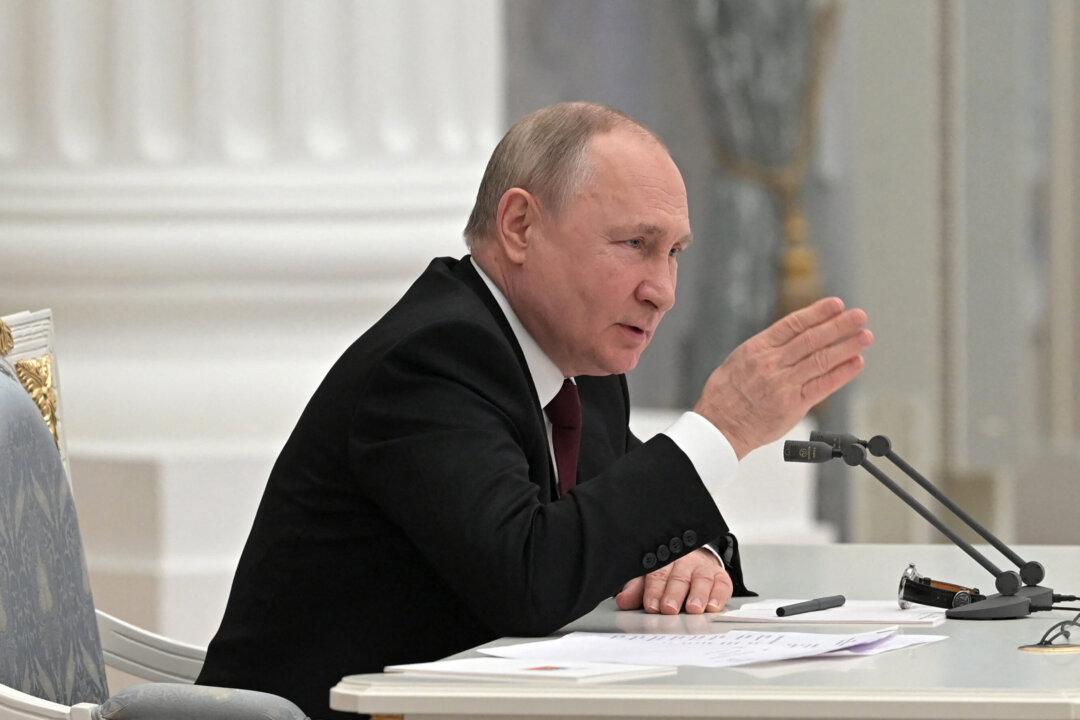Russian President Vladimir Putin on Feb. 21 said that Russia recognizes the independence of the separatist Donetsk and Luhansk regions in eastern Ukraine, which some Western officials say will give Moscow the pretext to send in troops.
Putin, in a lengthy speech, said he will “immediately recognize the sovereignty” of the Donetsk and Luhansk republics. On Feb. 21, the leaders of the two areas, which make up much of the Donbas, requested that Putin recognize their independence from Ukraine.






